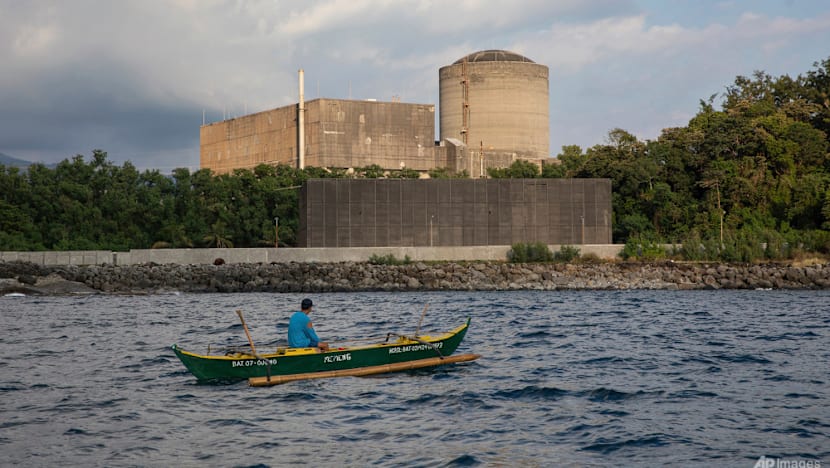Science
Singapore Evaluates Nuclear Energy Progress in Southeast Asia

On November 6, 2023, Singapore’s Minister-in-charge of Energy and Science & Technology, Tan See Leng, stated that the nation cannot verify the status or maturity of its neighbours’ nuclear energy initiatives. This announcement came during a parliamentary session where he addressed inquiries from Opposition Leader Pritam Singh regarding the regional adoption of nuclear technologies.
Minister Tan confirmed that Singapore is collaborating with the International Atomic Energy Agency (IAEA) to “triangulate” available data about nuclear projects in the region. He emphasized the difficulty in providing insights on neighbouring countries’ plans, noting that much of the relevant information remains undisclosed.
Nuclear Energy Developments in the Region
During the session, Tan mentioned that while there have been unofficial announcements, “a lot of that information is just not out there.” He referred to potential nuclear siting locations, indicating that some may be found 500 kilometers south of Singapore. The Minister also highlighted the interest in establishing small modular reactors in remote areas, such as Kalimantan in Indonesia.
Tan could not commit to timelines for nuclear projects in neighbouring countries, as the information is primarily derived from public reports. He acknowledged that while some countries express intentions to develop nuclear technology within the next 10 to 20 years, they have not clarified whether they will pursue conventional or advanced technologies. He stated, “If it is the advanced nuclear technology … like the small nuclear reactors, the Gen IV, then I think pretty much the assessment level, the readiness level, we are probably on par.”
Recent media reports have highlighted various nuclear energy ambitions in Southeast Asia. According to news agency Bernama, Malaysia plans to incorporate nuclear power into its energy generation mix by 2031. The Jakarta Globe previously reported that Indonesia aims to commission its first nuclear power plant by 2034. In the Philippines, the government has unveiled an energy plan targeting nuclear power generation by 2032, including plans for the Bataan nuclear power plant, which has not been operational since its completion in the 1980s. Vietnam is also aiming to activate its first nuclear plants between 2030 and 2035, according to Reuters.
Research Reactors and Singapore’s Nuclear Position
Despite the ambitions of its neighbours, Singapore has yet to make a decision on pursuing nuclear energy. Minister Tan reiterated this position, indicating that the country is studying nuclear as a potential low-carbon energy source. The Energy Market Authority (EMA) is currently assessing the feasibility of deploying advanced nuclear technologies in Singapore. Meanwhile, the National Environment Agency is focused on regulatory safety and safeguards related to any potential nuclear deployment.
Tan also mentioned that several countries in the region have already developed research reactors. For instance, Malaysia operates the Triga Puspati Reactor in Selangor, while Indonesia has three sites in Serpong, Bandung, and Yogyakarta. Vietnam’s Da Lat reactor, built in the 1960s, is another example, with plans for an additional research reactor reportedly underway.
These research reactors serve primarily for research rather than electricity generation. As Singapore navigates its nuclear energy considerations, the EMA has recently appointed British firm Mott MacDonald to conduct a study on advanced nuclear technologies, including water-cooled small modular reactors and Generation IV designs that utilize novel cooling systems or fuels.
In conclusion, Singapore’s cautious approach to nuclear energy reflects its commitment to thorough assessment and collaboration with international bodies, while the region’s ambitions highlight a growing interest in diversifying energy sources amid the global push for lower carbon emissions.
-

 Lifestyle3 months ago
Lifestyle3 months agoHumanism Camp Engages 250 Youths in Summer Fest 2025
-

 Sports3 months ago
Sports3 months agoDe Minaur Triumphs at Washington Open After Thrilling Comeback
-

 Business4 months ago
Business4 months agoKenvue Dismisses CEO Thibaut Mongon as Strategic Review Advances
-

 Sports4 months ago
Sports4 months agoTupou and Daugunu Join First Nations Squad for Lions Clash
-

 Top Stories4 months ago
Top Stories4 months agoColombian Senator Miguel Uribe Shows Signs of Recovery After Attack
-

 Health3 months ago
Health3 months agoNew Study Challenges Assumptions About Aging and Inflammation
-

 World4 months ago
World4 months agoASEAN Gears Up for Historic Joint Meeting of Foreign and Economic Ministers
-

 Business4 months ago
Business4 months agoOil Prices Surge Following New EU Sanctions on Russia
-

 Entertainment3 months ago
Entertainment3 months agoDetaşe-Sabah Violin Ensemble Captivates at Gabala Music Festival
-

 Entertainment3 months ago
Entertainment3 months agoBaku Metro Extends Hours for Justin Timberlake Concert
-

 Business4 months ago
Business4 months agoU.S. House Approves Stablecoin Bill, Sends to Trump for Signature
-

 Top Stories4 months ago
Top Stories4 months agoRethinking Singapore’s F&B Regulations Amid Business Closures








